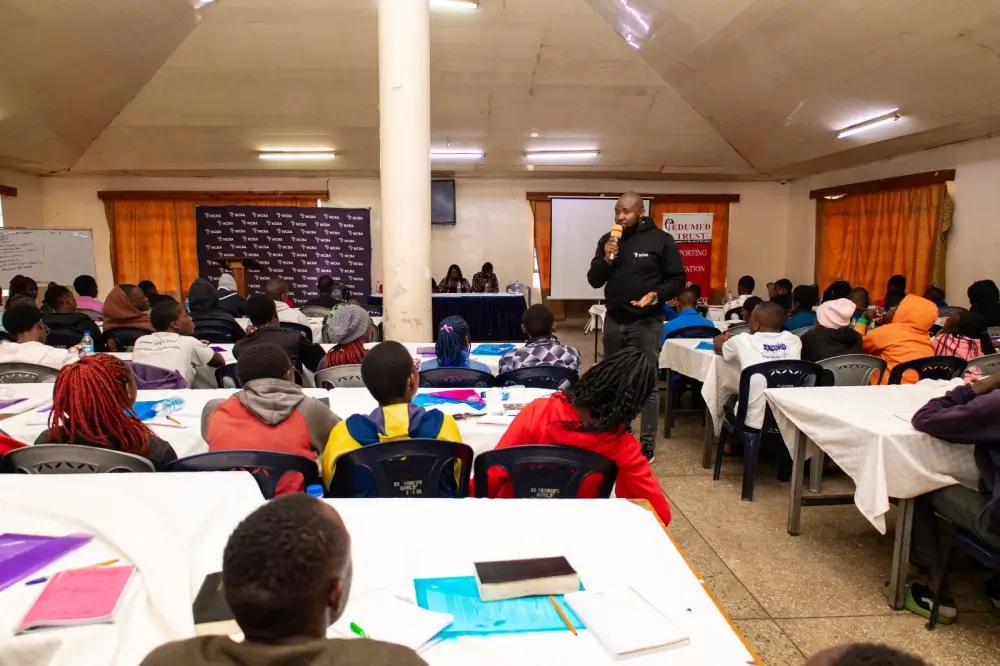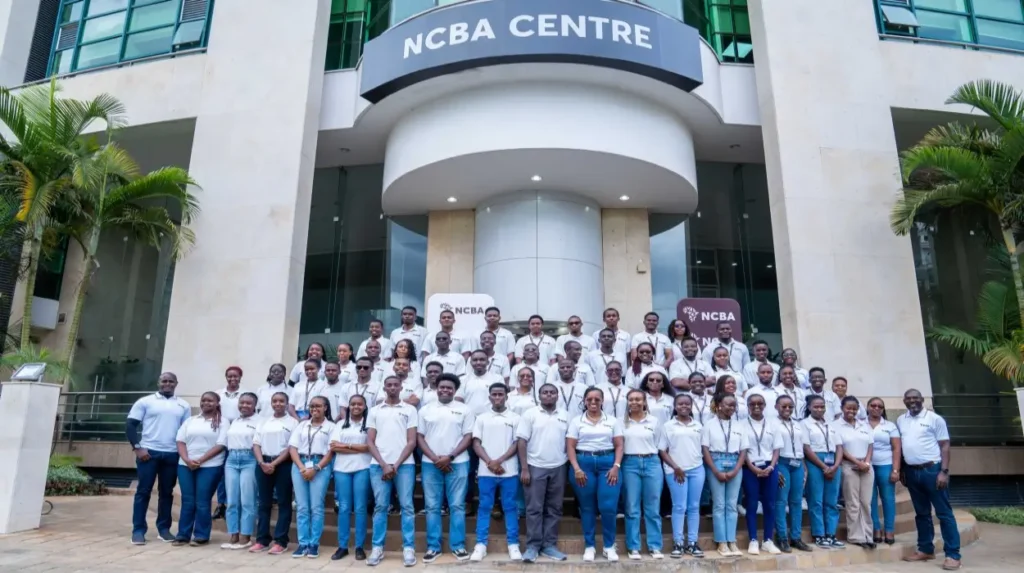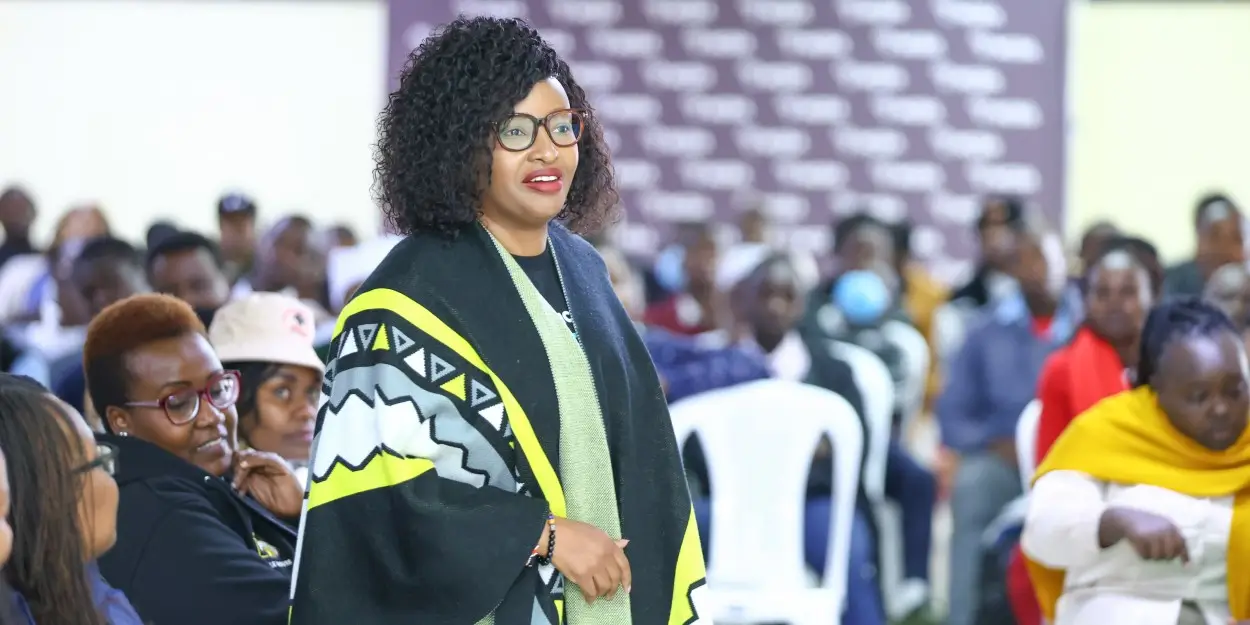In a world where corporate responsibility is no longer just a buzzword, NCBA is boldly stepping up, transforming mentorship from a simple initiative into a foundational part of its identity. Beyond the traditional confines of banking, NCBA is actively shaping Kenya’s future by empowering its youth. This isn’t about short-term campaigns; it’s a deep, long-term commitment to bridging the critical gap between academic knowledge and real-world application. Through strategic partnerships and impactful programs, NCBA is planting the seeds of resilience, purpose, and leadership, ensuring the next generation is equipped not just to face challenges, but to thrive in a dynamic global landscape. This is the new frontier of corporate impact, and NCBA is leading the charge right here in Kenya.
Nowadays, companies are expected to play a role in shaping society, offering guidance, and helping the next generation prepare for the opportunities and challenges ahead. And for NCBA, mentorship has become one of the ways to live out this responsibility.
Beyond Banking: Why Mentorship Matters
Youth in Kenya today face both promise and uncertainty. Access to education has expanded, but so have the hurdles of unemployment, limited guidance, and the pressures of navigating modern life. Many students and young professionals enter the world equipped with academic knowledge but without the mentorship needed to apply it meaningfully.
Also check: KSh 110 Billion Creative Economy: NCBA’s Strikes Code with Kenyan Artists
NCBA has taken on this gap not only as a corporate social responsibility, but as part of its identity. The bank is deliberately positioning itself as a mentor to the youth and school children, understanding that financial empowerment begins with personal empowerment.

NCBA’s mentorship approach is most visible through the partnerships it has built with organisations across the country. At a Palmhouse Foundation forum, for instance, NCBA mentors joined over 350 students from across Kenya for a day dedicated to youth empowerment and higher education access. The event was about self-belief, resilience, and direction. Since 2007, NCBA has supported over 300 Palmhouse students, demonstrating that long-term mentorship is a commitment, not a campaign.
At the Edumed Trust mentorship retreat, NCBA professionals engaged with bright, underprivileged students under the theme “Purpose in Practice.” The conversations focused on how to live with purpose in school and later in the workplace, showing that mentorship is not limited to academics but extends to shaping values, attitudes, and leadership.
These partnerships highlight a larger principle: mentorship is about access, guidance, and building bridges. By bringing its leaders into rooms with young people, NCBA is sharing more than advice, it is opening doors.

Mentorship at NCBA also acknowledges that success requires more than technical skills. Through the Mentenda programme with KCDF, the bank has revived the Boys Mentorship Programme at Upper Hill School, shaping over 1,300 students to date. Here, the focus is on leadership, discipline, and confidence. Mentorship becomes a movement, instilling qualities that will outlast school and carry into adult life.
This is where NCBA’s approach stands out: the institution treats mentorship as a tool for character development.
Opening Doors to the World of Work
Mentorship is not only for school children. For young adults preparing to transition into careers, NCBA has the Go-Getter Internship Programme, giving students exposure to the professional world. This programme provides not only workplace skills but also mentorship from seasoned professionals who help young people understand what it means to navigate careers, adapt to challenges, and build resilience.

Such initiatives are a bridge between education and employment, helping reduce the mismatch that often leaves graduates struggling to translate theory into practice.
For NCBA, mentorship is a long-term investment in the society it serves. By equipping young people with resilience, skills, and networks, the bank is indirectly contributing to a stronger economy and a more empowered customer base in the future.
In addition, mentorship reinforces the bank’s role as a trusted partner beyond financial services. By showing up in classrooms, forums, and retreats, NCBA is building relationships rooted in shared growth.
Mentorship is about planting seeds. Some will bear fruit in classrooms, others in boardrooms, and others still in communities where these young people will one day serve. By choosing to invest time, expertise, and care into the lives of students and young professionals, NCBA is ensuring that its impact will be felt for decades to come.

In every student guided, every conversation held, and every programme run, the bank is reinforcing the truth that empowering the youth today is securing the future of the nation tomorrow.
Key Highlights & Summaries
- Purpose Beyond Profit: NCBA’s commitment to mentorship is a core part of its identity, extending its role beyond a financial institution to a societal mentor.
- The Power of Partnerships: The bank strategically collaborates with key organizations like the Palmhouse Foundation and Edumed Trust to reach a wide and diverse group of students, demonstrating a collective approach to youth empowerment.
- Holistic Development: NCBA’s mentorship programs are not limited to financial literacy. They focus on character development, instilling qualities like resilience, discipline, and purpose—traits essential for success in all aspects of life.
- Bridging the Gap: Initiatives like the Go-Getter Internship Programme provide a crucial link between education and employment, helping young adults translate their academic knowledge into practical workplace skills and professional resilience.
- Long-Term Vision: The bank views mentorship as a strategic, long-term investment in Kenya’s future. By nurturing the next generation, NCBA is indirectly building a more robust economy and a more empowered society.





